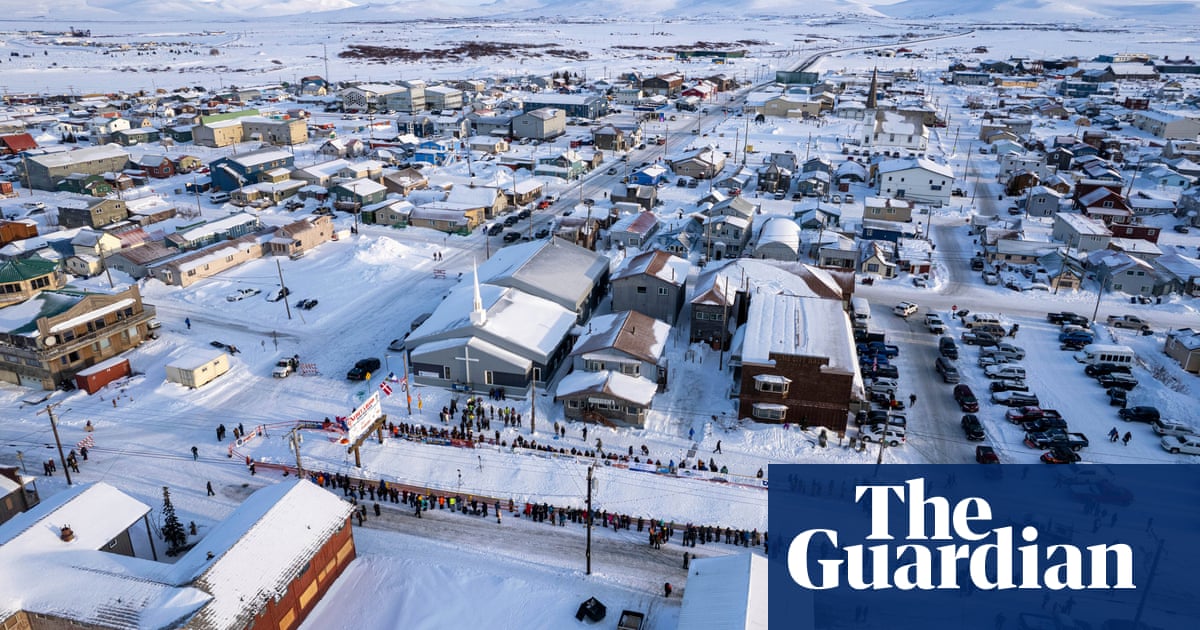
IDF says it has begun a 'targeted ground operation' in southern Lebanon
Israel has begun limited raids against Hezbollah in southern Lebanon, the military has said in a statement.
The IDF began a few hours ago a targeted and demarcated ground operation in southern Lebanon against terrorist targets and infrastructures of the terrorist organization Hezbollah.”
The IDF said that the targets were villages close to the border that pose an immediate threat to Israeli communities in the country’s north.
The statement follows a similar proclamation from the US earlier, in which White House officials that Israeli forces appeared to have launched “limited ground operations” targeting Hezbollah.
Heavy shelling into Lebanon has been taking place along the border in the area north of Kiryat Shimona. The towns of Marjayoun, Wazzani and Khiam were being shelled on Monday night.
Key events Show key events only Please turn on JavaScript to use this feature
As the IDF ground operation in southern Lebanon began, Israeli warplanes were launching strikes on Beirut’s southern suburbs.




The Guardian’s reporter in Beirut, Will Christou, has posted this video that purportedly shows the moment that an Israeli strike hit Lailakeh, in Beirut’s southern suburbs.
Late on Monday, at least two rockets were fired at a military base hosting US forces near Baghdad International Airport.
“The Victory Base at Baghdad Airport was targeted with three rockets, two of which were shot down by the base’s special defences, while the third fell near the headquarters of the Counter Terrorism Service Command,” a security source told AFP.
A second security source confirmed the report, noting that there were no casualties and that the rockets did not affect air traffic.
We have a bit more on the British efforts to evacuate citizens from Lebanon. Speaking to broadcasters earlier on Monday evening, foreign secretary David Lammy said: “We will do all that we can to assist people to get out and we have secured places on commercial flights that are flying tomorrow so that UK nationals can get out.
I urge them to leave because the situation on the ground is fast moving … And of course, whilst we will do everything we can to protect British nationals – and those plans are in place to do so – we cannot anticipate the circumstances and the speed with which we could do that if things escalate in a major way over the coming hours and days.”
Mr Lammy chaired a ministerial meeting of the Cobra emergency committee on Monday to discuss the crisis.
There are an estimated 5,000 British citizens in Lebanon and the government says it is working on “all contingency options”.
British military assets have been deployed to Cyprus and the eastern Mediterranean in case an evacuation is required, although ministers and officials have stressed that Britons should leave immediately.
Israeli media have noted that it is exactly 18 years to the days since the IDF withdrew from southern Lebanon after the Second Lebanon war.
On 1 October 2006, most Israeli troops withdrew from Lebanon after a months-long war against Hezbollah.
ב-1 באוקטובר 2006 הושלמה יציאת כוחות צה״ל מדרום לבנון, אחרי מלחמת לבנון השנייה.
18 שנים בדיוק לאחר מכן,
ב-1 באוקטובר 2024 - שבו כוחות צה״ל לדרום לבנון.
המטרה: להחזיר הביתה את תושבי הצפון ולהכות בחזבאללה - אחרי שנה שלמה מחוץ לבית.
הגיע הזמן לחזור הביתה
The IDF has reported rockets from southern Lebanon have continued to be fired into Israel.
Air alerts have been active across sections of the country’s north over the last hour.
The Israeli military said about “ten launches were detected that crossed the territory of Lebanon”.
The IDF says some of them were intercepted by air defence and others dropped into “an open area.”
As the Israeli military made its announcement that a “limited” ground operation had begun in southern Lebanon, Syrian state media reported that “hostile targets” had been intercepted over Damascus.
Local media reported that explosions could be heard over the Syrian capital.
IDF spokesperson Daniel Hagari has said Israeli forces “trained and prepared in recent months” for the ground operation which began in southern Lebanon in the last few hours.
The ground forces are accompanied in an attack effort by the Air Force and artillery forces, which attack military targets in the area in a coordinated effort with the fighters of the ground forces … Operation “Northern Arrows” continues according to the assessment of the situation at the same time as the fighting in Gaza and other arenas.
IDF says it has begun a 'targeted ground operation' in southern Lebanon
Israel has begun limited raids against Hezbollah in southern Lebanon, the military has said in a statement.
The IDF began a few hours ago a targeted and demarcated ground operation in southern Lebanon against terrorist targets and infrastructures of the terrorist organization Hezbollah.”
The IDF said that the targets were villages close to the border that pose an immediate threat to Israeli communities in the country’s north.
The statement follows a similar proclamation from the US earlier, in which White House officials that Israeli forces appeared to have launched “limited ground operations” targeting Hezbollah.
Heavy shelling into Lebanon has been taking place along the border in the area north of Kiryat Shimona. The towns of Marjayoun, Wazzani and Khiam were being shelled on Monday night.
US concerned by 'mission creep' in Lebanon - reports
The Biden administration has reportedly told the Israeli government that they are concerned that an “operation limited in time and limited in geographic scope slides into something larger and longer”, Axios reporter Barak Ravid has said.
גורמים בבית הלבן אמרו לעמיתיהם הישראלים שהם מודאגים, שכמו שכבר קרה במלחמות קודמות בלבנון, מה שמתחיל כפעולה מוגבלת בזמן ומוגבלת בהיקף גיאוגרפי גולשת למשהו גדול וארוך יותר, אמר מקור שמעורה בפרטים https://t.co/uIosxMy3s5
— Barak Ravid (@BarakRavid) September 30, 2024Ravid reports that the White House believes that they have reached an understanding with Israel on the scope of the ground operation in southern Lebanon, but “fear that it will expand and take longer.”
Jacob Magid, the Times of Israel US bureau chief, has also reported concern from the White House that the “IDF will get bogged down in the country or be drawn to expand the mission once it’s already in motion.”
Israeli officials have told US counterparts goal of limited op is to remove Hezb posts along northern border, creating conditions for diplo deal under where Hezb would be pushed back beyond Litani River, an Israeli official says.
— Jacob Magid (@JacobMagid) September 30, 2024Magid reports that a US official pointed to Israel’s 1982 invasion of Lebanon which was characterised as a “limited incursion, but it turned into an 18-year occupation of southern Lebanon”.
More on that statement from Hezbollah; the militant group has said it “targeted” Israeli troops carrying out “movements” near the Lebanese border. A source close to the group told the AFP news agency that Israeli soldiers were “right on the border”.
The group said it targeted “enemy soldiers’ movements in the orchards opposite Adaisseh and Kfarkila” near the border. A Lebanese security official told AFP there were “Israeli army movements on the southern Lebanese border”.
Hezbollah media reported “artillery shelling” near seperate border areas. Lebanon’s state-run National News Agency also reported “continued artillery shelling” on border areas.
Lebanon’s army has moved troops away from its southern border, a Lebanese military official told AFP.

Andrew Roth
As Israeli strikes on Beirut appear to intensify, a former Israeli diplomat has criticised the IDF’s ground incursion into Lebanon, saying that it could lead to the kind of deadly mission creep that had characterised the past failed operations of 1982 and 2006.
“What the hell does Israel mean by a limited [incursion],” Alon Pinkas, a former Israeli diplomat and critic of Benjamin Netanyahu, told the Guardian. “Is it limited in firepower? Is it limited in time? Is it limited in the employment of forces?”
Asked what could make this incursion different from the wars of 1982 or 2006, which resulted in a high numbrer of casualties among Israeli soldiers, he said: “Nothing. That’s what worries me. Yeah, nothing. I see no thinking here.”
More broadly, Pinkas doubted Israel’s reported goals of establishing a buffer zone in southern Lebanon that would allow Israeli residents to return to the border region.
“Going into Lebanon and establishing some kind of a buffer zone from the Israeli border to say, the Litani River … it’s very, very difficult to maintain that, that this is a very hostile area,” he said, adding that it had been hostile during the 1982 and 2006 wars. “But the important thing is, by doing so, you’re not eliminating Hezbollah’s ability to launch long range missiles.”
He also warned that the Israelis, as in previous incursions into southern Lebanon, would face the lure of mission creep.
“Once it begins to roll, things change, and all of the sudden, we got to take that village too. What about that hill? What about that little valley?” he said. “And then you have an ‘82 all over again.”
Pinkas said he wasn’t denouncing all military actions, just those that would lead to a protracted occupation of Lebanese territory.
“I stress the military importance of going in, doing what you got to do, and going out, right,” he said. “But if this evolves into some kind of a protracted presence in southern Lebanon, then what the hell did you achieve by that?”
Israeli cabinet reportedly approve next stage of military operation

Peter Beaumont
Late on Monday night, Israeli media reported that government sources had said the country’s cabinet had approved the next stage of the military operation targeting Hezbollah after a meeting earlier in the evening chaired by prime minister Benjamin Netanyahu.
It remains unclear quite what the situation on the border is. Hezbollah has said that they targeted Israeli troops near the border. Meanwhile, strikes across Beirut have intensified over the last hour.
Summary of the day so far
Here’s a recap of the latest developments:
-
Israeli forces appeared to have launched what sources called “limited ground operations” targeting Hezbollah inside southern Lebanon, US and other officials said late on Monday. Heavy shelling into Lebanon was taking place along the border in the area north of Kiryat Shimona. The towns of Marjayoun, Wazzani and Khiam were being shelled on Monday night. There were also reports of a heavy presence of Israeli aircraft over southern Lebanon.
-
Israel carried out more airstrikes in Dahieh, the southern suburbs of Beirut, after the Israeli military issued new instructions ordering residents of three buildings in the neighbourhood to evacuate immediately. Huge explosions were heard in the Lebanese capital late on Monday night. Israel’s military spokesperson Avichay Adraee issued maps of three locations in Dahieh, instructing residents to evacuate more than 500 metres away, marking the second time Israel instructed residents of Dahieh to evacuate prior to strikes.
-
At least 95 people were killed in Israeli strikes across Lebanon on Monday, according to the country’s health ministry. An airstrike early on Monday hit an apartment building in central Beirut – the first to hit in the heart of the Lebanese capital since 2006. The strike killed three members of the Popular Front for the Liberation of Palestine, a small, leftist Palestinian faction. Families of people who went missing in the strikes on the country have been urged to take DNA tests to identify the remains of loved ones.
-
The Lebanese army said it was “repositioning and regrouping forces” amid reports it had withdrawn three miles from the country’s southern border. The Lebanese army has evacuated observation posts at Lebanon’s southern border with Israel and moved to barracks in the border villages, according to reports.
-
UN peacekeepers in Lebanon can no longer patrol border areas in the south due to heavy artillery fire from Israeli forces and Hezbollah, a UN spokesperson said. The peacekeeping force of more than 10,000 personnel “remain in position” but cannot carry out road patrols due to “the intensity of the rockets going back and forth”, a spokesperson for the UN secretary general said on Monday.
-
Israel’s defence minister, Yoav Gallant, told community leaders that the “next phase of the war against Hezbollah will begin soon”. Gallant had earlier told troops in northern Israel: “We will use all of our capabilities – including you.” The Israeli military later declared areas of Metula, Misgav Am and Kfar Giladi in northern Israel a closed military zone. Israel’s security cabinet approved the next phase of the war against Hezbollah in Lebanon following a meeting on Monday night, according to Israeli media reports.
-
Benjamin Netanyahu, Israel’s prime minister, warned Iran it could strike anywhere in the region at will. “There is nowhere in the Middle East Israel cannot reach,” he said in a video addressed to the Iranian people. In a three-minute video clip in English, Netanyahu accused Iran of subjugating its citizens and directly threatened its leaders.
-
There was no official comment from Israeli officials on the ground operations in Lebanon, but Aryeh Deri, an Israeli minister who has been involved in wartime decision-making, tweeted the text of a Jewish prayer for the Israel Defense Forces (IDF) mentioning Lebanon. An IDF spokesperson warned Israelis not to publish information on troop movements and not to “spread irresponsible rumours”.
-
A US state department spokesperson said Israel had informed the US that it was conducting “limited ground operations focused on Hezbollah infrastructure near the border”. The US president, Joe Biden, said he was aware of Israel’s plans to launch an operation into Lebanon as he urged against such a move. “I’m more aware than you might know and I’m comfortable with them stopping,” he told reporters at the White House. “We should have a ceasefire now.”
-
Hezbollah vowed to keep fighting even after its longtime leader Hassan Nasrallah and other senior officials had been killed by Israeli strikes. Friday’s assassination of Nasrallah – the most powerful leader in Tehran’s “axis of resistance” against Israeli and US interests in the Middle East – was one of the heaviest blows in decades to Hezbollah and Iran. The group’s acting leader, Naim Qassem, said in a televised statement that if Israel launched a ground offensive, Hezbollah was ready. He said the commanders killed in recent weeks had already been replaced.
-
Hamas said its leader in Lebanon was killed on Monday in an Israeli strike on the country’s south. Fatah Sharif Abu al-Amine, “a member of the movement’s leadership abroad” was killed in an airstrike on his home in the al-Bass camp in south Lebanon, a Hamas statement said. The head of the UN’s agency for Palestinian refugees (Unrwa), Philippe Lazzarini, told reporters that Abu al-Amine was placed under investigation and suspended from his job at Unrwa in March.
-
Lebanon’s health ministry said on Sunday that more than 1,000 Lebanese have been killed and 6,000 wounded in the past two weeks, without saying how many were civilians. The government said a million people – a fifth of the population – have fled their homes.
-
At least 11 Palestinians were killed, including women and children, in an Israeli strike on a house in Nuseirat camp in central Gaza Strip, according to Gaza medics on Monday. Palestinian health officials said the Palestinian journalist, Wafa Al-Udaini, was killed by an Israeli airstrike in Gaza on Monday.
-
Yemen’s Houthis said they would escalate military operations against Israel in response to its attacks on the country on Sunday. On Sunday, a major Israeli raid hit ports in Yemen run by the Houthi militia group, which is also backed by Iran, fuelling fears of a slide towards a devastating regional conflict on multiple fronts. A spokesperson for the Houthis said after Sunday’s strikes would not cause the Iran-backed group to “abandon Gaza and Lebanon”.
-
The US is ending a “few thousand” troops to the Middle East to bolster security and to defend Israel if necessary, the Pentagon said on Monday. The increased presence will involve multiple fighter jet and attack aircraft squadrons, Pentagon spokesperson Sabrina Singh told reporters. The additional forces would raise the total number of troops in the region to as many as 43,000.
-
The UK government announced it has chartered a commercial flight out of Lebanon for Britons wanting to leave amid escalating violence. The flight is due to leave Beirut-Rafic Hariri international airport on Wednesday, the Foreign Office said, with priority given to vulnerable British nationals and their spouses, partners and children under 18. Britain’s foreign secretary, David Lammy, repeated calls for an immediate ceasefire between Israel and Hezbollah, after a call with his US counterpart, Antony Blinken.
-
The French foreign minister, Jean-Noël Barrot, visited Lebanon where he urged Israel against any ground incursion into the country. Barrot said the 21-day ceasefire proposal submitted by France’s president, Emmanuel Macron, and Biden was “still there on the table to be discussed”, adding: “There is hope, but time is very limited.”
-
Germany evacuated some non-essential staff out of Lebanon, as well as families of embassy workers and German nationals who are medically vulnerable, a statement by the German foreign ministry said on Monday. The US embassy in Beirut said it was working with airlines “to address US citizens request to depart Lebanon”.
A Lebanese security official told AFP that Israel conducted at least six strikes on south Beirut late on Monday and early Tuesday.
“Six or seven Israeli strikes hit the southern Beirut suburbs,” the official told the news agency.
Videos posted on social media show huge blasts in the Lebanese capital.










 English (US)
English (US)